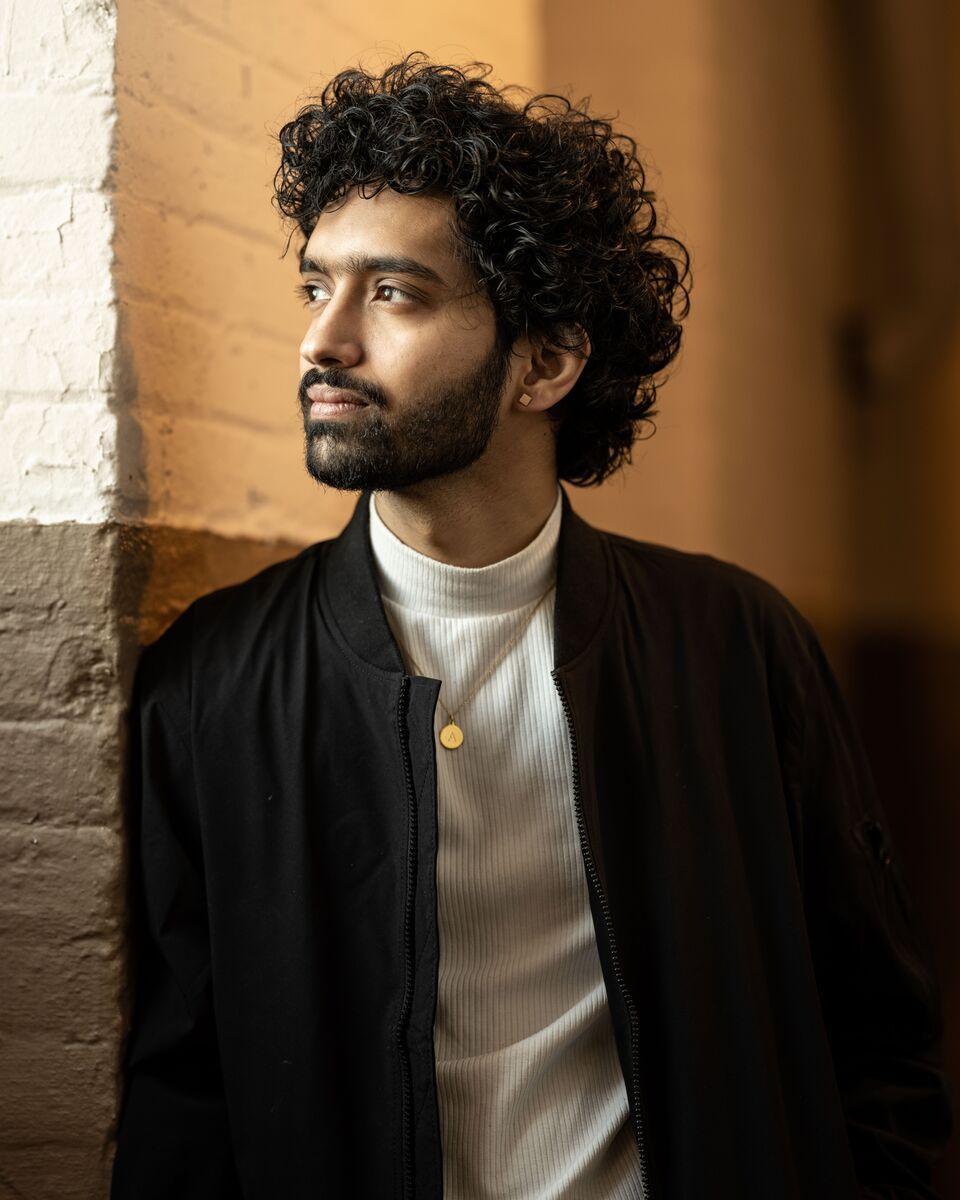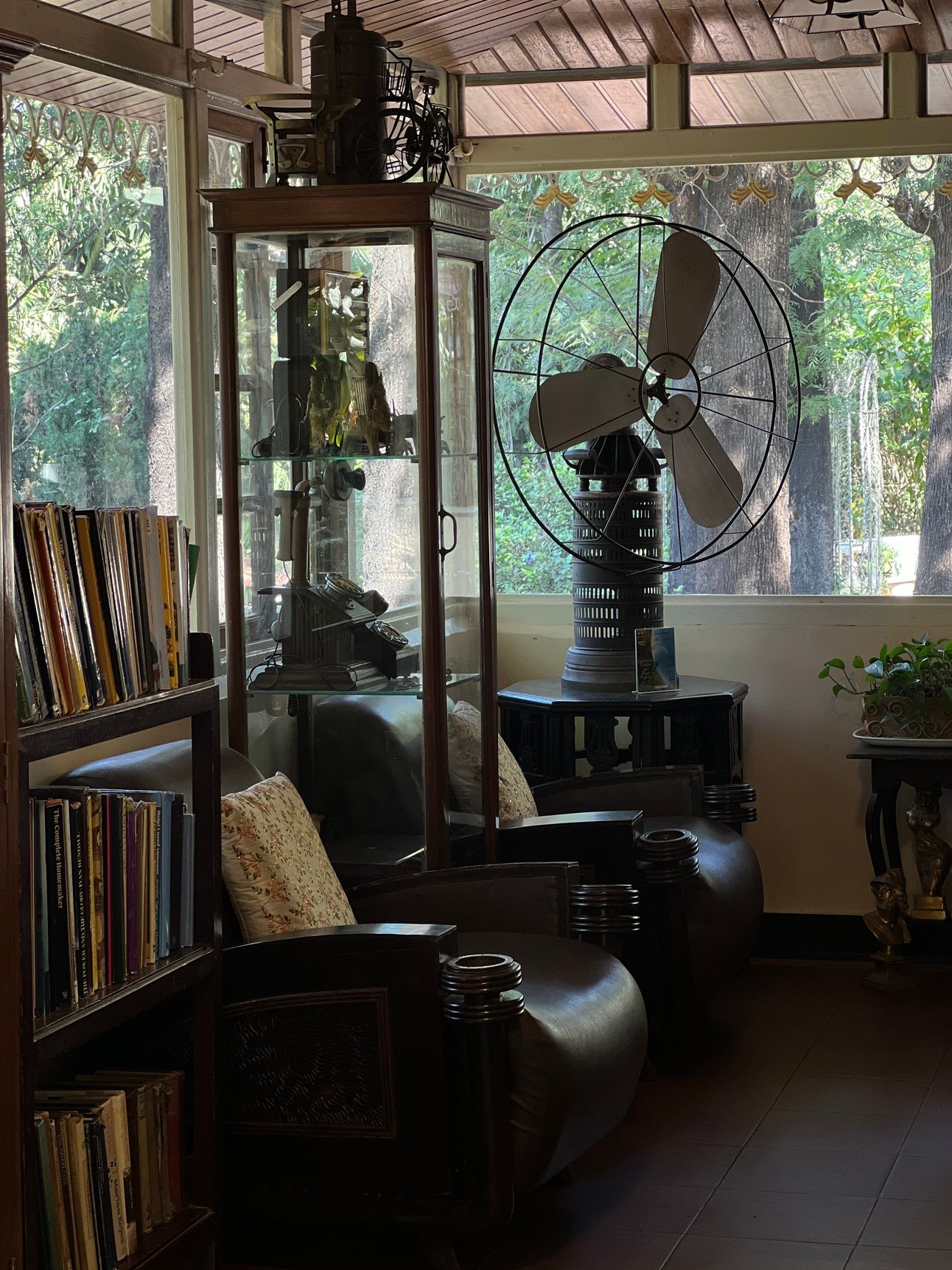Salut Les Amis! Greetings from Prospect Park in Panchgani! It is a place where the natural world unfolds as if it has always been part of the essence of life itself—a landscape that reaches out to both body and mind in ways that no words can fully encapsulate. Sitting here, nestled amongst the hills along Ring Road, I find myself in a space where time itself seems to slow, and I am reminded of how deeply the environment shapes our consciousness. Prospect Park in Panchgani, where tourism began, was crafted during the British era to offer a sanctuary from the demands of life. And here, in the heart of this park, I find myself experiencing the serenity and quiet that so effortlessly draws me into its embrace. As I gaze out at the lush trees and old colonial-style buildings, I am struck by the subtle power of this place. The quiet hum of nature—interspersed with the occasional call of a bird or the rustle of leaves—is a stark contrast to the often relentless noise of city life. This park is not merely a space for tourists or a mere stop on a sightseeing itinerary. It is a refuge, a sacred space for contemplation and renewal. The towering trees, the cool breeze, the vastness of the horizon—each element invites a sense of peace and introspection.
Earlier today, as the warmth of the sun filtered through the trees, I had the most peaceful nap, drifting into a dream where I found myself in Goa. Oddly, my dream included a peculiar moment, one that stood out even as I continued to drift between waking and sleeping. In the dream, I watched a scene from a 2012 TV show featuring Warren Mendonsa, where he was enjoying a most unusual dessert. It was a humble yet fascinating creation: banana slices served with French toast-style bread, but the twist was that the milk was made either from banana pudding or caramel custard. It was said to be a local specialty—something unique yet wholesome, both indulgent but not at all healthy. As I sit here, deeply connected with my surroundings, I feel a calmness that goes beyond the physical landscape. It is as though the very space I occupy offers an invitation to explore not only the external world but also the depths of my inner landscape.
This sense of calm is not a fleeting moment but a space that allows me to contemplate, reflect, and renew. It is in this environment that I am reminded of the wisdom of Dr. Jaal, who once said that the environment plays an integral role in shaping our thoughts and perceptions. Prospect Park, with its tranquil atmosphere, serves as the perfect space for reflection and mental renewal. Here, in this peaceful sanctuary, I am free to explore the deeper questions of existence, philosophy, and the nature of knowledge.The soothing landscape before me is more than just a visual treat—it serves as a mirror for the mind. Surrounded by these ancient trees, I begin to realize how much of a sanctuary this place serves for me. Just as the park offers a respite from the hustle and bustle of the city, it also provides a sanctuary for the mind. It is here, in these moments of stillness, that I find a sense of peace that extends beyond the physical space.
The very act of being present in this place brings me closer to the understanding of myself—my thoughts, my tendencies, and the deeper currents that drive me. As I reflect on the serene surroundings, I find my mind returning to a concept that has been central to my recent studies of Vedanta and Philosophy: The concept of "Mahat" According to Vedanta and the Purânas, Mahat is the foundational principle of the universe. It is the precursor to creation, embodying both intellect and consciousness. In Samkhya philosophy, Mahat is the first evolution of Prakriti, the inert matter, from which intellect and the cosmos emerge. Mahat is the source of the cosmos, a force that reflects both the creation and dissolution of all things in the universe.
In Vedanta, Mahat is synonymous with the cosmic intellect—Maha-Buddhi—and is often linked with Brahmâ, the creative god of the Trimurti, along with Vishnu and Shiva. The teachings of H. P. Blavatsky, a pivotal figure in modern spiritual thought, further expand on Mahat as the Universal Cosmic Mind. Her ideas draw attention to the vast interconnectedness of existence, reminding us that all things are part of a grand, unified consciousness.
As I reflect on these teachings, I also recall the insights of J. Krishnamurthy, whose work I have been exploring deeply over the past year. His teachings, like those of Blavatsky, resonate with the idea that knowledge and self-awareness are not separate from the universe but are integral to it. I have encountered Blavatsky’s name repeatedly in my research, especially in connection with The Secret Doctrine, a text that, while complex and challenging, offers profound wisdom on the nature of reality and thought. While I have yet to fully dive into this book, its teachings on the nature of thought and existence continue to call to me.
In this space of reflection, I find myself asking the simple yet profound question: Why? This question is the core of all inquiry, and it has become the driving force behind my studies and explorations. It is a question that seems to have no final answer, yet it continuously propels me forward on the path of understanding. The more I ask "Why?" the deeper I go into the mysteries of the mind and the universe. This endless questioning is not a frustration but rather the very essence of the pursuit of knowledge.What is especially fascinating is that as I explore my thoughts and experiences, I realize that thought itself is the filter through which my mind expresses itself.
The quality of thought, like a lens, shapes my perception of the world. And it is in those moments of deep concentration—like when I am playing the guitar—that I experience the purity of thought. When I am fully immersed in the act of playing, with no desire for an outcome or judgment, my mind becomes as pure as the music itself. There is a clarity in those moments, a focus that transcends the noise of everyday life. It is in this state of purity that I begin to glimpse the true nature of knowledge, which emerges not through accumulation but through deep engagement with the present moment.
The more I study these foundational principles—whether through Vedanta, the teachings of Krishnamurthy, or Blavatsky—the more I realize that the quest for knowledge is not a destination but a journey. It is a journey that leads inward, toward an understanding of the self and the universe, and outward, toward the dissolution of the ego. In this journey, every step is an opportunity to peel back the layers of illusion and reach toward a deeper truth.Whether I am immersed in the pages of a book, reflecting in the quietude of Prospect Park, or practicing my music, I know that this quest for understanding is guiding me toward something much greater.
The question "Why?" is not just a question about the world but a question that leads me toward deeper self-awareness and wisdom. So, I encourage you, too, to take time for reflection and introspection, to pause amidst the hustle and bustle of life, and to embrace the questions that drive us toward deeper understanding. For it is in these moments of stillness and inquiry that we begin to touch the essence of who we are—and in that discovery, we find the peace and insight that guide us on the journey of life.
With peace and insight,
-xoxo
Ameya Deshpande

